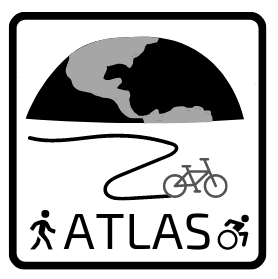Current Projects
Daily Experiences of Climate Change Distress

The widespread impact of climate change is a challenge facing all areas of our global existence. In addition to the environmental threats to the sustainability of our planet, we have a generation of individuals facing a future where the very existence of earth is uncertain. The extent to which this uncertainty permeates into one’s ongoing awareness has the potential to create considerable distress in the form of anxiety about the future health of our planet, as well as feelings of depression, hopelessness, and despair. Climate change distress is becoming more common and concerning among youth and young adults who experience fear and/or despair related to the present and future effects of climate change. Over 45% of youth report that their lives are adversely affected by concerns about climate change. While it remains critical to work diligently to slow the ecological impacts of climate change, it is also imperative to better understand how the looming threat of climate change is affecting the ongoing mental health and well-being of individuals within their daily lives.
This project is supported by a SSHRC Insight Development Grant and will examine the prevalence of climate change distress that is experienced on a day-to-day basis among young adults, as well as the mechanisms that relate these climate change distress experiences to daily well-being and climate action.
Daily Experiences of Stress and Health

Using data from the National Study of Daily Experiences (NSDE) and the Midlife in the United States (MIDUS) projects, we examine how minor daily stressors impact concurrent health and well-being, as well as have downstream effects on health later in life. These projects examine both daily self-reports of stress, health, and well-being, as well as biological indicators of stress (e.g., cortisol) and health.
Check out our recent paper that finds a moderate amount of negative emotional reaction to daily stressors (i.e., stressor reactivity) may be more optimal to your health and well-being than too little or too much of a reaction.
This research was featured in a recent story in Time Magazine.
mHealth App Interventions

Mobile health (mHealth) technology provides an unprecedented opportunity to more accurately capture health behaviours and well-being experiences as they occur in everyday life. mHealth apps also allow us to deliver messages, information, or nudges to individuals at times when they may be most receptive to positive behaviour changes.
We utilize mobile technology to deliver intervention materials that target modifiable lifestyle factors, such as diet, sleep, and physical, social, and cognitive activities. By influencing one’s day to be healthier, and repeating with enough regularity to form healthier habits, we aim to promote healthier lifestyles.
This research is supported by the Age-Well AgeTech Advance: Healthy Aging Research Program. [Associated Press]
Active Transportation Longitudinal Study on Aging (ATLAS)

Enabling active transportation in cities through age-friendly infrastructures can help promote physical activity and facilitate mobility in the community. However, the built environment and design of many communities are critical determinants of active transportation among older adults as it can either serve to limit or support active transportation. To facilitate active aging, many cities have invested in age-friendly infrastructure but the active transportation patterns of older adults is relatively understudied.
In order to better serve the active transportation needs of older adults, the current study unites multiple disciplines from Psychology, Geography, Civil Engineering, and Exercise Science to examine the impact of supportive infrastructure for age-friendly active transportation (e.g., protected cycling lanes and walkways) on longitudinal changes in cognitive function, physical health, and well-being among older adults.
This project is supported by a SSHRC Insight Development Grant.
Find out more about this project: oac.uvic.ca/atlas
To learn more about any of our ongoing projects, please feel free to reach out: rushslowlab@uvic.ca
